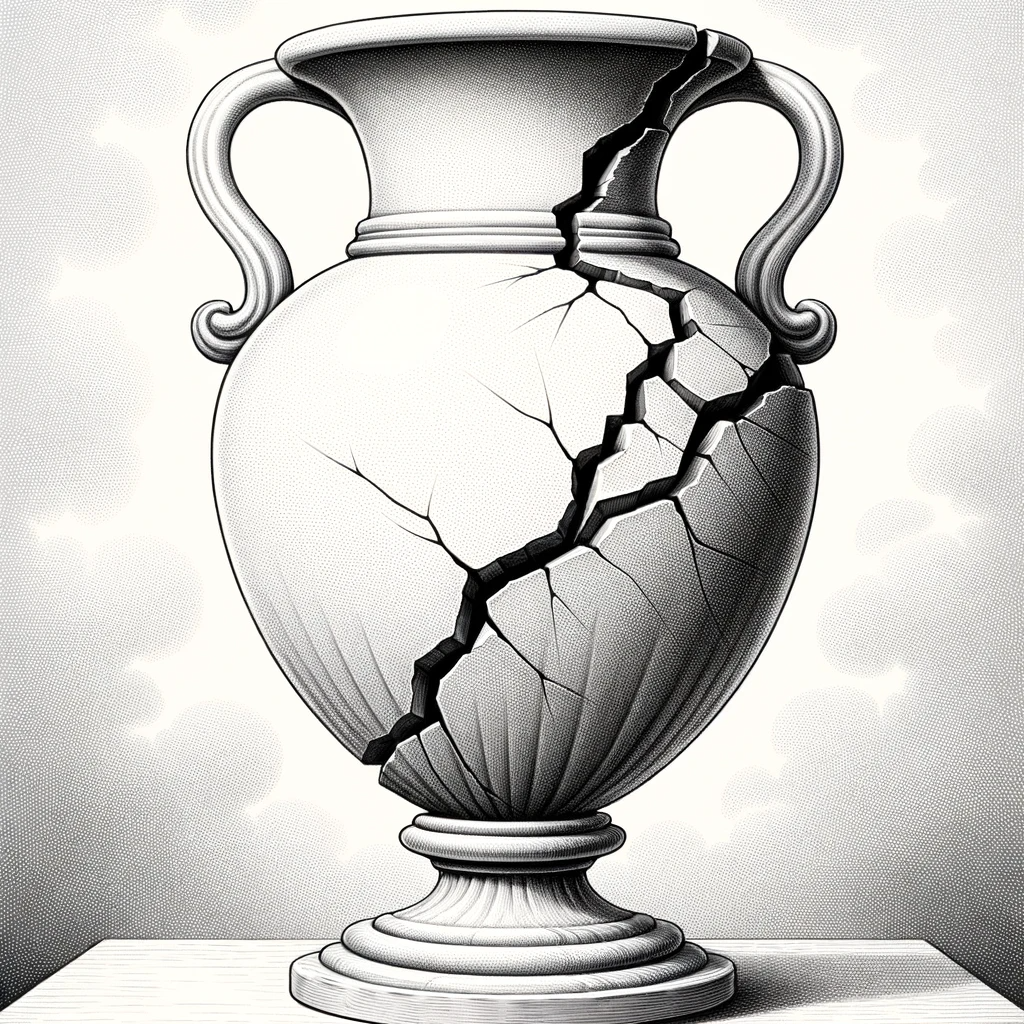Break
Definition
Break is a verb and a noun with multiple meanings. As a verb, it means to separate into parts with sudden force, to interrupt, or to escape. As a noun, it can refer to an interruption, a pause, or a fracture or gap in something.
Parts of Speech
- Verb
- Noun
Pronunciation
American English
- IPA Pronunciation: /breɪk/
- Respelling: BRAYK
British English
- IPA Pronunciation: /breɪk/
- Respelling: BRAYK
Etymology
The word "break" originates from the Old English "brecan," meaning "to break" or "to shatter." It is related to the Old Norse "brjóta" and the Dutch "breken," all conveying the sense of separation or interruption.
Derivatives
- Breakage (noun)
- Breakable (adjective)
- Breakthrough (noun)
- Breakdown (noun)
- Outbreak (noun)
Synonyms
- Fracture
- Pause
- Interrupt
Antonyms
- Fix
- Repair
- Continue
Usage
The term "break" is used in various contexts, from describing physical damage to pauses in activities. For example, "The vase might break if dropped," or "Let's take a break for lunch."
Related Terms
- Fracture: A crack or break in something hard, such as bone or material.
- Interval: A pause or gap in time between events.
- Rupture: To burst or break suddenly.
Detailed Definitions
Verb
- To separate into parts suddenly or violently: Describes the act of causing something to split or shatter.
- Example: "He accidentally broke the glass."
- To interrupt an activity or sequence: Means to stop or cause a pause in an ongoing action.
- Example: "They decided to break the meeting for a quick rest."
- To make an escape or way through something: Used to mean leaving confinement or breaking through a barrier.
- Example: "The prisoners planned to break out of jail."
Noun
- An interruption or pause: Refers to a temporary halt in an activity or process.
- Example: "They took a break after two hours of work."
- A fracture or gap in something: Describes a physical separation or rupture.
- Example: "There was a break in the fence."
break



🇨🇳 Mandarin
- 断
- IPA: /duàn/
- Respelling: duàn
- 休息
- IPA: /xiūxí/
- Respelling: xiūxí
🇮🇳 Hindi
- टूटना
- IPA: /ʈuːt̪naː/
- Respelling: tūtnā
- आराम
- IPA: /aː.ɾaːm/
- Respelling: ārām
🇪🇸 Spanish
- Romper
- IPA: /ˈrom.per/
- Respelling: romper
- Descanso
- IPA: /desˈkan.so/
- Respelling: descanso
🇫🇷 French
- Casser
- IPA: /ka.se/
- Respelling: casser
- Pause
- IPA: /poz/
- Respelling: pause
🇦🇪 Modern Standard Arabic
- كسر
- IPA: /kasar/
- Respelling: kasar
- استراحة
- IPA: /is.ti.raː.ħa/
- Respelling: istirāḥa
🇧🇩 Bengali
- ভাঙা
- IPA: /bʱaŋa/
- Respelling: bhaṅa
- বিরতি
- IPA: /bi.rɔ.ti/
- Respelling: bīrati
🇷🇺 Russian
- Ломать
- IPA: /ˈlo.mətʲ/
- Respelling: lomat'
- Перерыв
- IPA: /pʲɪˈrʲer.ɨf/
- Respelling: pereryv
🇵🇹 Portuguese
- Quebrar
- IPA: /keˈbɾaɾ/
- Respelling: kebrar
- Descanso
- IPA: /deʃˈkɐ̃su/
- Respelling: descansu
🇮🇩 Indonesian
- Pecah
- IPA: /ˈpe.tʃah/
- Respelling: pecah
- Istirahat
- IPA: /is.ti.ra.hat/
- Respelling: istirahat
🇩🇪 German
- Brechen
- IPA: /ˈbʁeː.çən/
- Respelling: brechen
- Pause
- IPA: /ˈpaʊ̯.zə/
- Respelling: pause
🇯🇵 Japanese
- 壊す
- IPA: /kaɪ.su/
- Respelling: kowasu
- 休憩
- IPA: /kʲɯː.keː/
- Respelling: kyūkei
🇻🇳 Vietnamese
- Làm vỡ
- IPA: /lam vo˧˩/
- Respelling: lam vở
- Nghỉ ngơi
- IPA: /ŋi˧ˀ˨ʔ ŋoj˧˩/
- Respelling: nghỉ ngơi
🇰🇷 Korean
- 부수다
- IPA: /buː.sʰu.da/
- Respelling: busuda
- 휴식
- IPA: /hju.ʃik̚/
- Respelling: hyusik
🇹🇷 Turkish
- Kırmak
- IPA: /kɯrˈmak/
- Respelling: kırmak
- Mola
- IPA: /moˈlaː/
- Respelling: mola
🇵🇰 Urdu
- توڑنا
- IPA: /toːɽ.naː/
- Respelling: toṛnā
- آرام
- IPA: /aː.ɾaːm/
- Respelling: ārām





